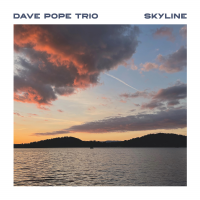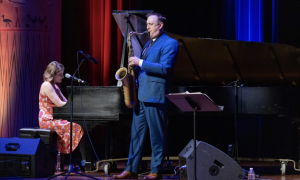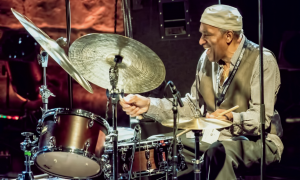Home » Jazz Articles » Catching Up With » Lee Konitz: What True Improvising Is
Lee Konitz: What True Improvising Is

Konitz's focus on standards common to the jazz repertoire continues on the 2012 recording that features him prominently in a leaderless quartet dubbed Enfants Terribles, Live at the Blue Note (Half Note), along with collaborators

Bill Frisell
guitar, electricb.1951

Gary Peacock
bass, acoustic1935 - 2020

Joey Baron
drumsb.1955
Born in 1927, Konitz was a slightly junior contemporary of

Charlie Parker
saxophone, alto1920 - 1955

Miles Davis
trumpet1926 - 1991

Lennie Tristano
piano1919 - 1978

Warne Marsh
saxophone, tenor1927 - 1987
Konitz recalls that it was Jeff Levenson of Half Note records who put the Enfants Terribles ensemble together. "It was actually supposed to be 'Les Enfants Terribles.' They forgot the 'Les.' It wasn't my title, anyway. I just say, 'OK, what the hell.' You've got to call it something, so, that's good enough." The recording at the Blue Note in New York City in June 2011 captured their first performance together, and the four musicians reprised their performance about a year later in the same venue, in August 2012. "I enjoyed playing with that band quite a lot. We never played together after that first date, and I was looking forward to it. When it happened, I enjoyed it. I didn't feel we advanced much the way we could have if we played a tour together, but I enjoyed it."
On their live recording and at their return to the Blue Note, Enfants Terribles performed standards nearly exclusively, although the band took a very free approach to each selection. Theirs was never a straight reading of the melody by a lead voice, followed by two or three choruses of improvisation by each member in turn, finished off with a crisp, closing melody statement. Instead, they emphasized improvisation from the start, using the standards' harmonic structure as a general point of reference-or point of departure-only touching ona few bars of the original melodies here and there.
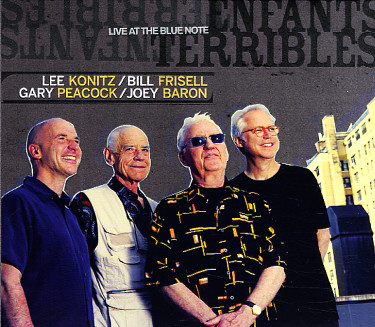 "It's taken me a long time to kind of realize that I'm not playing for the audience, so to speak," says Konitz. "I never think of it that way. But in a sense, I do enjoy playing the melody. Why not play it every once in a while, uninhibitedly? I've never been against playing a melody." The CD does include one small exception to this overall approach on the opener,
"It's taken me a long time to kind of realize that I'm not playing for the audience, so to speak," says Konitz. "I never think of it that way. But in a sense, I do enjoy playing the melody. Why not play it every once in a while, uninhibitedly? I've never been against playing a melody." The CD does include one small exception to this overall approach on the opener, 
Cole Porter
composer / conductor1891 - 1964
"I'm not trying to hide the basic structure of the tune," says Konitz. "I'm never trying to do that. But, of course, you know that this has been a technique a good many years, with Charlie Parker and everybody writing variations on tunes, Miles Davis with 'Donna Lee' based on "Indiana.'"
Bill Frisell contributed a strong voice in Enfants Terribles, according to Konitz. "He's irreplaceable, I think. His sound, his interest in what's going, and the way he includes himself are unparalleled. I can't imagine that happening with another guitar player offhand. Maybe

John Abercrombie
guitar1944 - 2017

Billy Bauer
guitar1915 - 2005
Konitz gives high marks to the other members of the ensemble, as well. "Gary Peacock is very special. He seems to go in a different direction sometimes, but as I listen to him playing more and more, I see what he's doing clearly." Joey Baron provided a contrast to another notable drummer who has collaborated with Konitz,

Paul Motian
drums1931 - 2011

Brad Mehldau
pianob.1970

Charlie Haden
bass, acoustic1937 - 2014
Another recent collaborator gets some deserving praise from Konitz. "I've been playing with a pianist in different contexts named

Dan Tepfer
pianob.1982

Greg Cohen
bass, acousticMuch of Konitz's work over the years is marked by a great deal of freedom in his improvisation, but he nearly always gravitates toward standards and familiar chord changes, and he considers his approach as very different from the experiments in free improvisation that he did early in his career with Lennie Tristano. "I just enjoy playing on a familiar structure, a good chord progression, and a fine tune. Playing totally free-on the Tristano thing-it almost sounds like classical music. It doesn't really get into a tempo or anything like that. I like that sometimes, like starting out a set that way, something spontaneous, but that'll lead to someone playing the melody and we'll go there. And I prefer to get into swing at some point. What Tristano did earlier-his so-called free jazz-sounded like there were no specific chord changes, but usually had some kind of tonality. One time he was trying to explain that to me on an airplane. I said, wait until we get on the ground. Too abstract for me."
A recording yet to be released as of this writing puts Konitz out in front of the WDR Big Band, the outstanding ensemble based in Cologne, Germany. "It's a recording of arrangements of my tunes and Tristano's work by the fine arranger

Michael Abene
pianob.1942

Florian Weber
piano
Jeff Denson
bass
Ziv Ravitz
drums
Bill Holman
composer / conductor- 2024
A couple of recordings from the 1960s that many regard as classics come to mind in light of Konitz's recent work, partly due to their instrumentation and partly due to their overall approach to improvisation: The Lee Konitz Duets (Milestone, 1968), featuring a host of guest artists, and Motion (Verve, 1961), with bassist
Sonny Dallas
bassb.1931

Elvin Jones
drums1927 - 2004
When asked about his standing in jazz as something of an elder statesman, Konitz points again to his dedication to what he refers to as "true improvising"-staying far way from "getting trapped in a stylistic thing of having to play the same licks over and over." But he summarizes his place in jazz overall with a remarkably simple statement: "All I can honestly tell you is I appreciate being included in this family."
Selected Discography
Enfants Terribles, Live at the Blue Note (Half Note, 2012)
Lee Konitz/Brad Mehldau/Charlie Haden/Paul Motian, Live at Birdland (ECM, 2011)
Dan Tepfer/Lee Konitz, Duos with Lee (Sunnyside, 2009)
Lee Konitz, Some New Stuff (DIW, 2001)
Lee Konitz, The Lee Konitz Duets (Milestone, 1968; reissued on OJC, 1991)
Lee Konitz, Motion (Verve, 1961, reissued 2003)
Photo Credit
Richard Conde
Tags
Comments
PREVIOUS / NEXT
Support All About Jazz
 All About Jazz has been a pillar of jazz since 1995, championing it as an art form and, more importantly, supporting the musicians who make it. Our enduring commitment has made "AAJ" one of the most culturally important websites of its kind, read by hundreds of thousands of fans, musicians and industry figures every month.
All About Jazz has been a pillar of jazz since 1995, championing it as an art form and, more importantly, supporting the musicians who make it. Our enduring commitment has made "AAJ" one of the most culturally important websites of its kind, read by hundreds of thousands of fans, musicians and industry figures every month.
Go Ad Free!
To maintain our platform while developing new means to foster jazz discovery and connectivity, we need your help. You can become a sustaining member for as little as $20 and in return, we'll immediately hide those pesky ads plus provide access to future articles for a full year. This winning combination vastly improves your AAJ experience and allow us to vigorously build on the pioneering work we first started in 1995. So enjoy an ad-free AAJ experience and help us remain a positive beacon for jazz by making a donation today.

New York City
Concert Guide | Venue Guide | Local Businesses
| More...




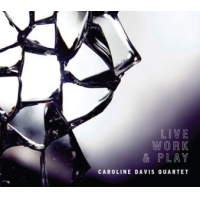
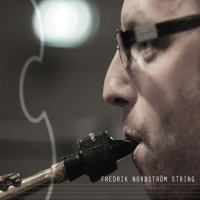

 Buy Now
Buy Now



